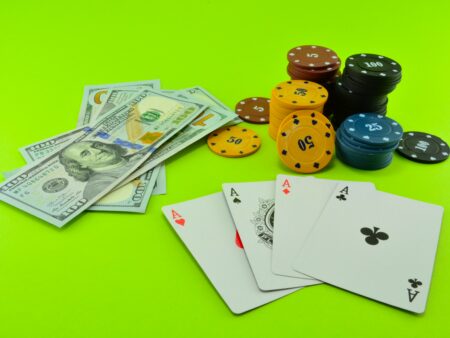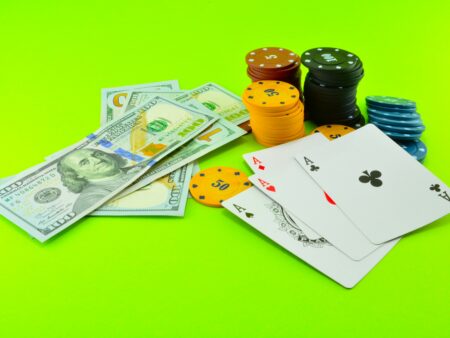Discover the science behind roulette and gain insight into the concepts of probability and odds. Learn how to enhance your chances of winning at this popular casino game.
The Science of Roulette: Exploring Probability and Odds
Have you ever wondered about the science behind the popular casino game, roulette? How does the spinning wheel and the bouncing ball determine your fate? In this article, we will delve into the fascinating world of roulette and explore the concepts of probability and odds.
Roulette is a game of chance that has been captivating players for centuries. With its iconic spinning wheel and the anticipation of where the ball will land, it offers a thrilling experience for both beginners and seasoned gamblers.
At its core, roulette is a game of probabilities. Understanding the odds can help you make informed decisions and potentially increase your chances of winning. So, let’s dive deep into the science of roulette!
Understanding the Basics: The Roulette Wheel and Table
Before we delve into probability and odds, let’s first familiarize ourselves with the components of a roulette game. The game revolves around a spinning wheel with numbered pockets and a table layout where players place their bets.
The roulette wheel consists of either 37 (European roulette) or 38 (American roulette) numbered pockets, alternating in red and black colors. The numbers range from 1 to 36, while the European wheel has one additional pocket with a single green zero (0), and the American wheel has a green zero (0) and a double zero (00).
The table layout displays various betting options, including individual numbers, groups of numbers, and colors. Players place their bets by placing chips on the corresponding areas of the table.
The Game Within the Game: Probability and Odds
Now that we understand the basic components of roulette, let’s explore the concepts of probability and odds that govern the game. Probability refers to the likelihood of an event occurring, while odds represent the ratio of the probability of an event happening to the probability of it not happening.
In roulette, the probability of winning a specific bet depends on the number of favorable outcomes compared to the total number of possible outcomes. For example, if you bet on a single number, there is only one chance of winning out of the total number of pockets on the wheel.
With a European wheel, your chances of winning on a single number bet are 1 in 37, as there are 37 pockets on the wheel. The odds, on the other hand, are usually expressed as a ratio or a fraction. In this case, the odds would be 36 to 1, meaning that for every 36 times you lose, you can expect to win once.
The House Edge: Understanding the Casino’s Advantage
Roulette is ultimately a game of probabilities, but it’s important to recognize that the casino always has an advantage, known as the house edge. The house edge is the mathematical advantage that the casino holds over players, ensuring that the odds are always in their favor.
In European roulette, the house edge is approximately 2.7%, while in American roulette, it increases to around 5.26% due to the additional double zero (00). This means that, in the long run, the casino will always profit from players’ bets.
However, understanding the house edge can still be beneficial as it allows you to make educated decisions and choose bets with better odds. For instance, bets with higher payouts may offer greater excitement but usually have higher house edges, while bets with lower payouts tend to have better odds.
Strategies to Enhance Your Chances
Although roulette is a game of chance, there are several strategies that players employ to try and maximize their chances of winning. It is important to note that no strategy can guarantee consistent wins, as the outcome is ultimately determined by random chance.
One popular strategy is the Martingale system, which involves doubling your bet after each loss with the aim of recouping your previous losses and making a profit. However, this strategy requires a significant bankroll and carries a substantial risk of hitting the table’s maximum bet limit, resulting in potential losses.
Another approach is the Fibonacci system, based on the famous mathematical sequence. It involves placing bets according to the Fibonacci sequence, where each subsequent number is the sum of the two preceding numbers. While this strategy can minimize losses in the short term, it doesn’t guarantee consistent wins.
Enjoy the Thrill, Gamble Responsibly
Roulette is a captivating game that combines excitement and uncertainty. While understanding the science behind the game can provide insights and help make informed decisions, it’s important to remember that gambling should be done responsibly.
Always set yourself a budget and never gamble with money you can’t afford to lose. Remember that the outcome of each spin is completely random, and no strategy can guarantee consistent wins.
So, next time you find yourself at a roulette table, embrace the thrill of the game and enjoy the experience. Just remember to gamble responsibly and have fun!










